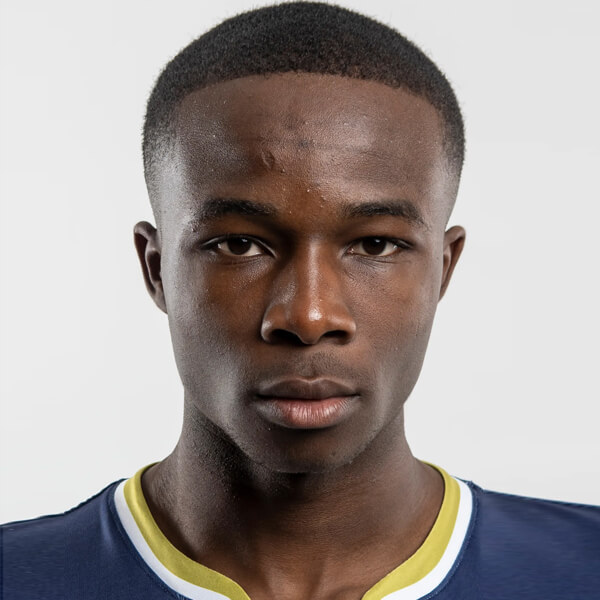Adjusting to US realities
I never really thought about it a lot before I moved out to the States. Because where I grew up, it was kind of a diverse background, like London's like a melting pot for all sorts of cultures and identities and new people from all around the world. And when I moved out to back to Dubai, even more so. And I never really, obviously, I knew I was Black originally from Nigeria, but I never really thought of that as the central part of my identity until I came here. And obviously, before I came here, that was the stuff on the news with the Black Lives Matter and it made me more aware that race was going to be a factor in settling in, in transitioning from the UK to the US. And even deeper than that, being from England, and being Black as well. There's little things that are different to the normal black experience. And I guess those are all things that I'm still venturing around with, and I'm still trying to get used to really, but now I can say that, like I'm more than just a Black person, like I'm a British Black person, I'm a British Black athlete. I'm a Christian, British Black athlete. So like, there's a lot more to, to it than just my race now. And it's just about piecing all those bits together.
Even before moving out here, I wasn't as aware of the discrimination and suffering that Black people and people of minority even during the COVID period for, for Asian people for the Asian population in America, like, I didn't realize how much suffering that they were going on, you know, on a personal level, and how that was seen in their environment. And it really opened my eyes really to like, how I talked to different — how I talk to people of color, minority people, even in my own environment, as well, and how, you know, those words can hurt if anything, and coming out here and knowing how real it really is, beforehand, really helped me like, avoid sort of a culture shock before even coming out here. Because, you know, there's been times where even I've experienced some elements of discrimination as well, for the first time over here as well. But I guess having it sort of as bad as it sounds, having like, it not come to as a surprise, or also makes it less hurtful and something that, like you have to be aware of, and something that you have to know how to deal with before it happens, if anything. So you can take preventative measures from having it affect you.
Yeah, it was really one of the big parts of me like becoming a design major from a business major and having that freedom to be able to, like, tell a story and tell sort of my story in the way that I want to tell. And, like most projects, I'd say, I always try and link it back to my culture, like whether that be my African culture, or even my personal culture and what's like, inspired me growing up. Like I know, I've done a painting. One of my first projects was a painting of like, the village that my family originated from in Nigeria that had been last December. So it was sort of like a memory painting in that way. And I was able to express you know, the artistic style of like, the artistic style and traits that African– Western African art has and, you know, show a different form of art to my fellow classmates and show even like a different environment to my fellow classmates, as well as show them that that part of the word that maybe not many people may be familiar with, but it's something that I hold close to my heart.

Eno Nto
Eno Nto is a sophomore at Notre Dame. He is a design major from London, England and plays as a NCAA athlete on the Men's Soccer Team.